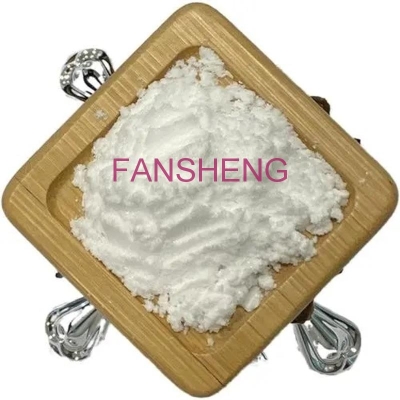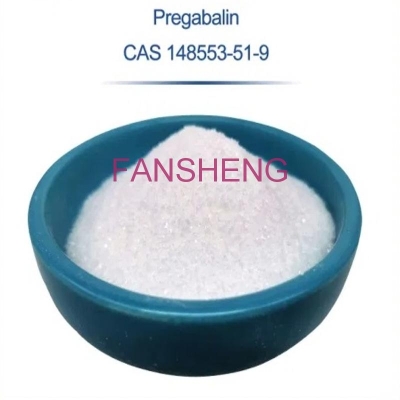-
Categories
-
Pharmaceutical Intermediates
-
Active Pharmaceutical Ingredients
-
Food Additives
- Industrial Coatings
- Agrochemicals
- Dyes and Pigments
- Surfactant
- Flavors and Fragrances
- Chemical Reagents
- Catalyst and Auxiliary
- Natural Products
- Inorganic Chemistry
-
Organic Chemistry
-
Biochemical Engineering
- Analytical Chemistry
- Cosmetic Ingredient
-
Pharmaceutical Intermediates
Promotion
ECHEMI Mall
Wholesale
Weekly Price
Exhibition
News
-
Trade Service
Editor-in-Charge | Alcohol and tetrahydrocannabinol Δ9-tetrahydrocannabinol (THC) are two common psychoactive substances that can severely affect brain function (e.
g.
, brain cognition, blood-brain barrier permeability, and motor coordination function)
with acute or chronic use.
Notably, numerous clinical and fundamental studies have shown that a combination of alcohol and cannabis can cause more serious motor coordination disorders
than either alone.
The National Highway Traffic Safety Administration issued a dedicated statement highlighting that the mixed use of alcohol and marijuana will cause more vicious traffic accidents
.
Although the combined use of cannabis and alcohol can cause toxicity reinforcement and bring more serious social burdens, the neural mechanism of this synergistic reinforcement has not been clear
until now 。 On September 15, 2022, Professor Xiong Wei's research group of the Department of Life Sciences and Medicine of the University of Science and Technology of China published a research paper entitled Combined alcohol and cannabinoid exposure leads to synergistic toxicity by affecting cerebellar Purkinje cells online in the journal Nature Metabolism
。
The study revealed the neural mechanism by which alcohol and cannabinoids target the presynaptic cannabinoid receptor (CB1R) and extrasynaptic glycine receptor (esGlyR) in the cerebellar Purkinye cells synergistically lead to dyskinesia, and propose the development of novel drugs targeting esGlyR for the relief of this dyskinesia, further accelerating the clinical treatment
of alcohol and cannabis abuse 。 Professor Xiong Wei's research group of the University of Science and Technology of China has long been engaged in the study of the molecular and loop mechanisms of inhibitory ion channel GlyR regulating neurological diseases, and comprehensively studied the mechanism of cannabinoid-targeted GlyR regulation of various neurological diseases by comprehensively using multidisciplinary research methods such as ex vivo and in vivo electrophysiological patch forceps, bioinformatics drug screening, nerve loop tracing and mass spectrometry analysis
.
Up to now, he has made a series of important research achievements in the pathogenesis, treatment and research and development of new drugs in chronic pain, familial convulsions, epilepsy, movement disorders and other neurological diseases (Nat Chem Biol, 2011; J Exp Med, 2012; Nat Neurosci, 2014; Neuropharmacology, 2018; iScience, 2019; JBC, 2020; FASEB J, 2020; Cell Reports, 2020), revealing a novel mechanism
by which cannabinoids treat various neurological disorders by targeting GlyR.
In the latest Nature Metabolism paper, researchers demonstrated in mouse models that both low and high doses of alcohol in combination with THC can cause more severe dyskinesia than either alone
.
After the evaluation of motor coordination behavior, the researchers found through c-fos nucleus screening that Pukenye cells in the 4/5Cb cerebral region are significantly activated
during the process of alcohol and cannabinoids synergistically leading to dyskinesic behavior.
Subsequently, after in-brain microinjection and electrophysiological record analysis, the researchers found that CB1R distributed before the synapse of Pukenye's cells and esGlyR outside the synapse were key targets
for the synergistic effect of alcohol and cannabinoids 。 In addition, the researchers used newly synthesized cannabinoid fluorescent probes, small animal imaging, and mass spectrometry analysis to find that alcohol can significantly speed up the speed of THC through the blood-brain barrier, suggesting that even low-dose alcohol can improve the permeability of the blood-brain barrier in a very short period of time, accelerate THC through the blood-brain barrier into the brain, and enhance the synergy between
alcohol and cannabinoids in the brain.
Finally, by chemically modifying THC, the researchers developed a novel cannabinoid compound, DDT, which can specifically block THC's regulatory effect on esGlyR and can greatly alleviate the dyskinesia caused by the synergy of alcohol and cannabinoids
.
Zou Guichang, a special associate researcher at the University of Science and Technology of China, and Xia Jing, a doctoral candidate, are the co-first authors of the paper, and Professor Xiong Wei is the sole corresponding author of
the paper.
Illustration: Schematic diagram of alcohol and cannabinoids synergistically causing dyskinesia
g.
, brain cognition, blood-brain barrier permeability, and motor coordination function)
with acute or chronic use.
Notably, numerous clinical and fundamental studies have shown that a combination of alcohol and cannabis can cause more serious motor coordination disorders
than either alone.
The National Highway Traffic Safety Administration issued a dedicated statement highlighting that the mixed use of alcohol and marijuana will cause more vicious traffic accidents
.
Although the combined use of cannabis and alcohol can cause toxicity reinforcement and bring more serious social burdens, the neural mechanism of this synergistic reinforcement has not been clear
until now 。 On September 15, 2022, Professor Xiong Wei's research group of the Department of Life Sciences and Medicine of the University of Science and Technology of China published a research paper entitled Combined alcohol and cannabinoid exposure leads to synergistic toxicity by affecting cerebellar Purkinje cells online in the journal Nature Metabolism
。
The study revealed the neural mechanism by which alcohol and cannabinoids target the presynaptic cannabinoid receptor (CB1R) and extrasynaptic glycine receptor (esGlyR) in the cerebellar Purkinye cells synergistically lead to dyskinesia, and propose the development of novel drugs targeting esGlyR for the relief of this dyskinesia, further accelerating the clinical treatment
of alcohol and cannabis abuse 。 Professor Xiong Wei's research group of the University of Science and Technology of China has long been engaged in the study of the molecular and loop mechanisms of inhibitory ion channel GlyR regulating neurological diseases, and comprehensively studied the mechanism of cannabinoid-targeted GlyR regulation of various neurological diseases by comprehensively using multidisciplinary research methods such as ex vivo and in vivo electrophysiological patch forceps, bioinformatics drug screening, nerve loop tracing and mass spectrometry analysis
.
Up to now, he has made a series of important research achievements in the pathogenesis, treatment and research and development of new drugs in chronic pain, familial convulsions, epilepsy, movement disorders and other neurological diseases (Nat Chem Biol, 2011; J Exp Med, 2012; Nat Neurosci, 2014; Neuropharmacology, 2018; iScience, 2019; JBC, 2020; FASEB J, 2020; Cell Reports, 2020), revealing a novel mechanism
by which cannabinoids treat various neurological disorders by targeting GlyR.
In the latest Nature Metabolism paper, researchers demonstrated in mouse models that both low and high doses of alcohol in combination with THC can cause more severe dyskinesia than either alone
.
After the evaluation of motor coordination behavior, the researchers found through c-fos nucleus screening that Pukenye cells in the 4/5Cb cerebral region are significantly activated
during the process of alcohol and cannabinoids synergistically leading to dyskinesic behavior.
Subsequently, after in-brain microinjection and electrophysiological record analysis, the researchers found that CB1R distributed before the synapse of Pukenye's cells and esGlyR outside the synapse were key targets
for the synergistic effect of alcohol and cannabinoids 。 In addition, the researchers used newly synthesized cannabinoid fluorescent probes, small animal imaging, and mass spectrometry analysis to find that alcohol can significantly speed up the speed of THC through the blood-brain barrier, suggesting that even low-dose alcohol can improve the permeability of the blood-brain barrier in a very short period of time, accelerate THC through the blood-brain barrier into the brain, and enhance the synergy between
alcohol and cannabinoids in the brain.
Finally, by chemically modifying THC, the researchers developed a novel cannabinoid compound, DDT, which can specifically block THC's regulatory effect on esGlyR and can greatly alleviate the dyskinesia caused by the synergy of alcohol and cannabinoids
.
Zou Guichang, a special associate researcher at the University of Science and Technology of China, and Xia Jing, a doctoral candidate, are the co-first authors of the paper, and Professor Xiong Wei is the sole corresponding author of
the paper.
Illustration: Schematic diagram of alcohol and cannabinoids synergistically causing dyskinesia
Original link:
Maker: Eleven
Reprint Notice
【Non-original article】The copyright of this article belongs to the author of the article, welcome individuals to forward and share, without the author's permission is prohibited from reprinting, the author has all legal rights, violators will be prosecuted
.







